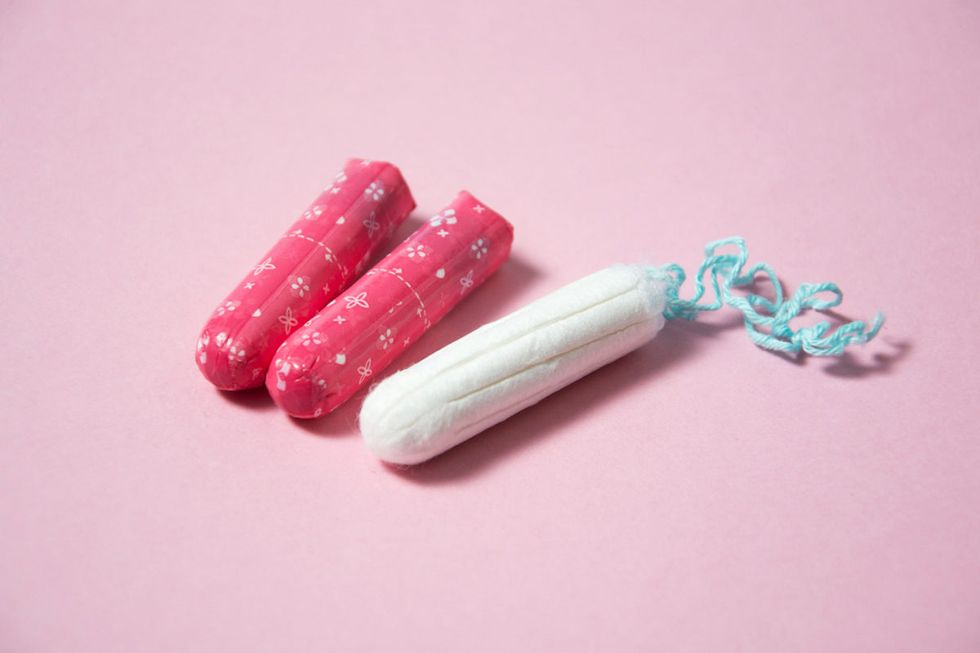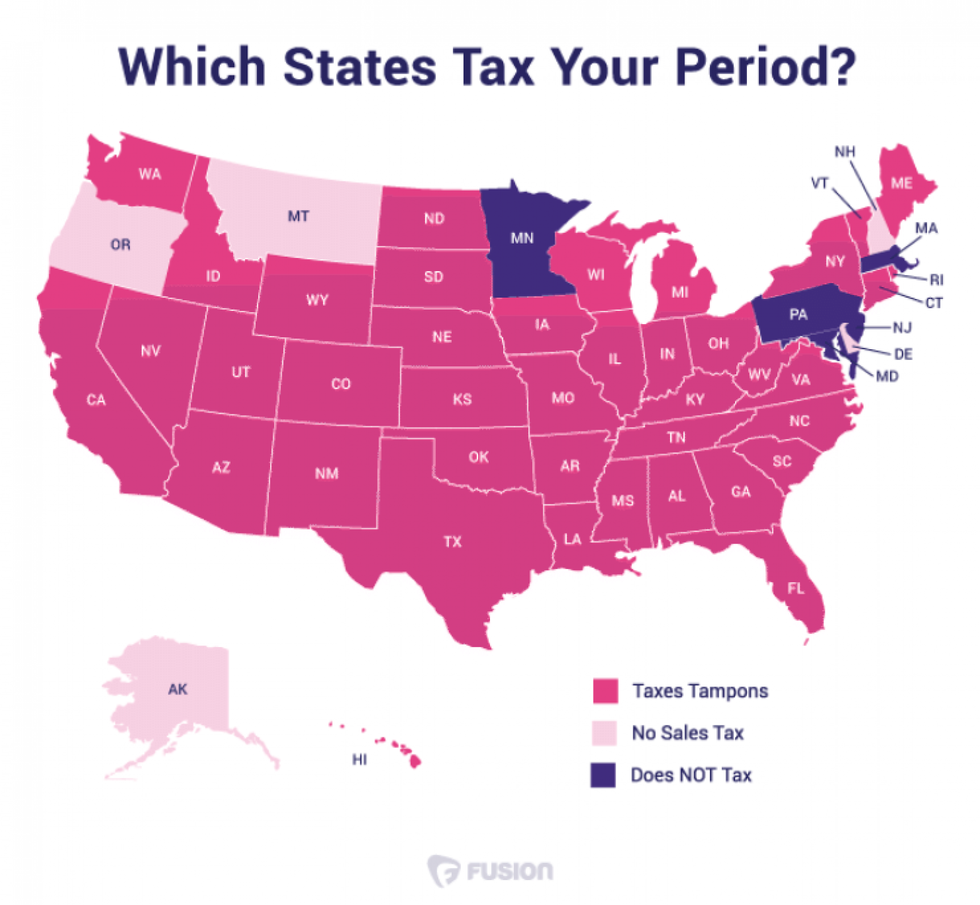Being a woman is hard: you grow these breasts and you have to buy expensive bras to hold them your whole life, you get pressured into buying makeup or dieting to fit narrow standards of beauty, and your uterus tears itself to shreds every month for 40 years before you have to suffer through menopause. You know what makes being a woman even harder? Being taxed for it.
Tampons and pads are taxed as ‘luxury’ items in 38 of 50 states. What’s so luxurious about a stick of cotton that you bleed into? In my opinion, nothing, but certain lawmakers think otherwise. Women in California who spend an average of $7 a month on hygiene products generate over $20 million annually in taxes, and what state doesn’t want all that extra money?
States with sales taxes will often exempt items necessary for living from the tax, usually meaning food and medical supplies. How is it that 38 states don’t believe tampons are a medical necessity when a women has no choice but to menstruate for almost half her life? Women have to buy these products (or a cup, which doesn't work for everyone, but I digress) or they’ll leave traces of their uterus all over bus seats and office chairs.
This ‘tampon tax’ is directed at women and profiting off a medical condition they have no control over. A study of product prices in New York found that, in general, women’s products cost 7% more than similar men’s products, and personal care products cost 13% more. Women are already paying more for the same items as men on top of paying a luxury tax on their medically necessary feminine hygiene products.
As the remaining 38 states begin to see legislation that would exempt feminine hygiene products from the sales tax, critics are getting more vocal. Their argument is that other hygienic necessities, such as toilet paper and soap, aren’t exempt from sales taxes. Diapers, shampoo, band-aids and most everything else in your bathroom that many of us would consider essential are still taxed, so why do tampons deserve special treatment? Jennifer Weiss-Wolf of The Nation puts it perfectly, saying “Anyone who has ever had a period (mostly women) knows that one can make do without a bar of soap, that bandages can be improvised and that there’s toilet paper aplenty in public restrooms.
Women who don’t have access to menstrual products are prone to reproductive infection, not to mention humiliation. Menstruation simply is different—there is no analogous hygiene need. Period.”
It might not mean much in the long run for women, with a Colorado fiscal analysis reporting savings of only $1.71 per woman if the state exempted hygiene products from sales tax, but it comes down to principle. At the end of the day, it is not fair and cannot be justified to tax women for a product that is a medical necessity to them.









































